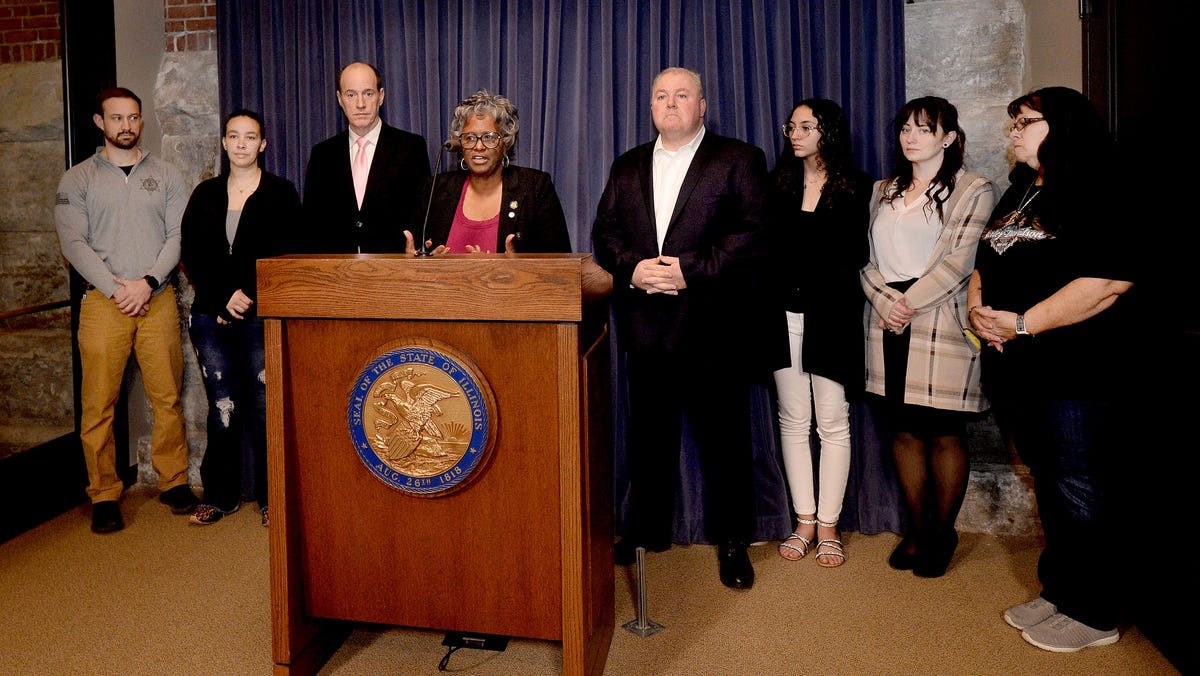1 of 3 | Florida officials in January opened the floodgates to fill the first cell of a 6,500-acre Everglades Agricultural Area storm water treatment system to help protect the Everglades and nearby communities, while improving local water quality. Photo by Cristobal Herrera-Ulashkevich/EPA-EFE
April 30 (UPI) — A potential crisis in Florida should ease after state lawmakers this month allocated $2.25 billion to improve water quality and restore the state’s imperiled biodiversity.
Gov. Ron DeSantis last week announced the allocation of $1.5 billion to restore the Everglades and improve water quality during the next fiscal year.
The funding comes in addition to DeSantis signing into law April 4 a measure that allocates the state’s share of profits from Seminole gaming revenue toward protecting the state’s natural resources and wildlife. Those comes to some$750 million annually, according to state officials.
“I made a promise to Floridians that we would leave this state better to God than we found it,” DeSantis said in the April 22 announcement. “We are doing that for out future and our children’s future.”
The $1.5 billion allocation provides $850 million for Everglades restoration projects, which includes $614 million to support the state’s Comprehensive Everglades Restoration Plan and the Everglades Agricultural Area Reservoir.
Some $530 million is allocated to support water improvement in the state, including $100 million toward completing a reservoir to provide better quality water for residents in Palm Beach and Broward counties and reduce the amount of freshwater discharged into the Lake Worth Lagoon.
Another $135 million funds a grant program that covers the costs of local projects that remove harmful nutrients from the state’s waterways. Such projects include wastewater treatment and septic-to-sewer improvements.
Indian River Lagoon projects will receive $100 million, and $45 million will go to water-quality improvements in Biscayne Bay and the Caloosahatchee Estuary.
Largest single investment
The allocation of $1.5 billion is the largest single-year investment Florida officials ever made to protect and improve the state’s natural resources.
The new funding will help counteract what environmentalists and others call one of the nation’s worst biodiversity crises.
Biodiversity refers to the many living species of animals, plants, fungi and bacteria on Earth and in local ecosystems, according to National Geographic.
Florida is one of the nation’s most biodiverse states and one of the most imperiled.
“Florida leads states in drivers of biodiversity loss,” Lindsay Rosa, vice president of conservation research and innovation at the Washington, D.C.-based Defenders of Wildlife, said during the organization’s April 12 webinar series called “Drivers of the Biodiversity Crisis: America at a Crossroads.”
“Humans are the driving force” of most of the biodiversity loss and potential species extinction in Florida and throughout the United States, Rosa said.
More than a million species globally are identified as at-risk of extinction, including about 40% of species that are native to Florida, according to Defenders of Wildlife.
Many of those species are found only in Florida, which makes them especially rare and vulnerable to changes in climate and habitat.
Florida has more than 4,000 species of animals, including many that are native only to the Sunshine State, according to the University of Florida’s Institute of Food and Agricultural Sciences Extension office.
Potential extinction
Without significant changes to the state’s natural resources, many of those species might become extinct.
Rosa and the Defenders of Wildlife identified five general threats to biodiversity that negatively impact Florida, the rest of the nation and the world.
Those are:
- Climate change
- Overexploitation of species
- Pollution
- Habitat loss
- Invasive species
Rosa said habitat loss is a significant driver of biodiversity loss in Florida and the rest of the world.
Florida’s endemic species adapted to a particular type of habitat over several centuries. When habitat loss occurs due to development and changing climatic conditions, an equal percentage of native species also disappear, according to the IFAS Extension office.
Sometimes, the habitat loss might seem negligible, like the extending in 1950 of U.S. 41, which cuts through the Everglades while connecting Miami and Naples.
U.S. 41 is designated a National Scenic Byway, but the aboriginal Miccosukee Tribe has a different perspective.
Plumbing needs fixing
“U.S. 41 is a giant earthen dam,” Curtis Osceola, chief of staff for the Miccosukee Tribe, said during the Defenders of Wildlife webinar. “We need to fix the plumbing of the western Everglades.”
The western and central Everglades are experiencing water quality issues and losses of local tree-island habitats due to changing water and drainage conditions that endanger native animals, like the Florida panther, black bears and white tail deer, Osceola said.
Enrique Montes, an assistant scientist as the National Oceanic and Atmospheric Administration, agreed.
During the webinar, Montes said drastic changes to Florida’s population and resulting development over the past several decades have changed how the Everglades discharges water.
“It’s very important that we understand how the habitats respond to environmental change and human activities to be able to preserve the services that these ecosystems provide,” Montes said.
The wetlands initially discharged water on a north-to-south route toward the Florida Bay and the Keys.
Development largely disrupted that flow, which Montes said now splits into three directions, while greatly reducing the amount of water discharged at the state’s southern tip.
A water-seepage barrier wall project that is underway helps to restore natural water flow from north to south through the Everglades and into Florida Bay. It also protects local communities against potential flooding during tropical storms.
Climate change is another daunting threat that is especially dangerous for Florida, where 1.86 million properties have a 25% chance of being flooded over the next three decades, according to researchers at the Florida Atlantic University’s Archbold Biological Station.
The biological station on April 16 published a report titled, “The Florida Wildlife Corridor and Climate Change,” noting that flooding dangers are especially threatening as tropical storms become stronger and more frequent over time and rising sea levels inundate near-shore properties and freshwater supplies with saltwater.
The recent actions by state officials with support from environmentalists and stakeholders seek to mitigate the effects of climate change and other threats that are endangering Florida’s biodiversity and natural resources.
































